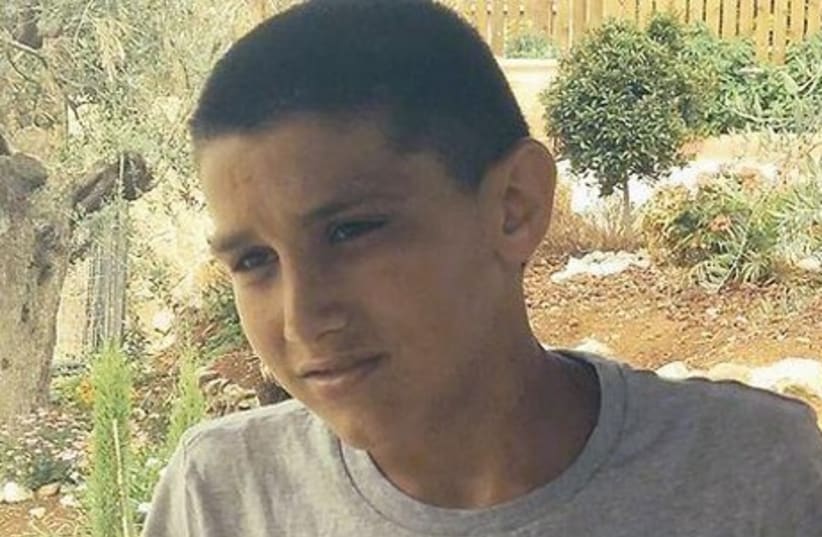

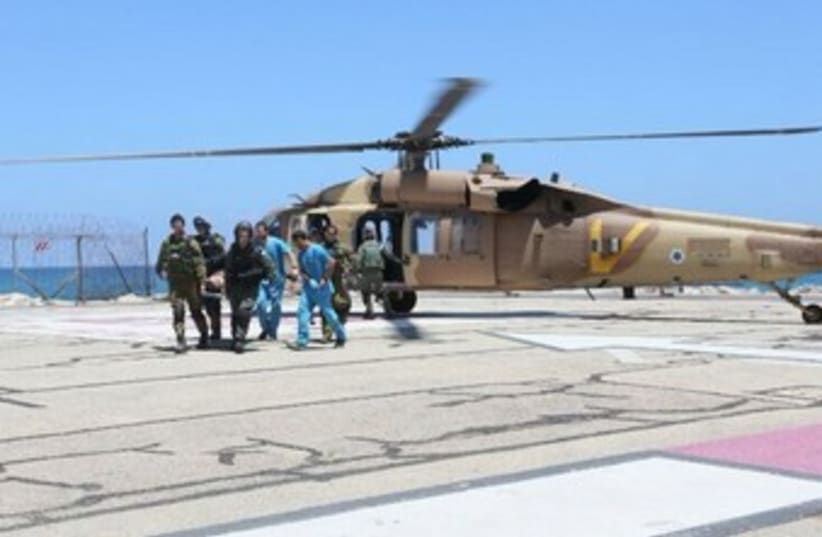
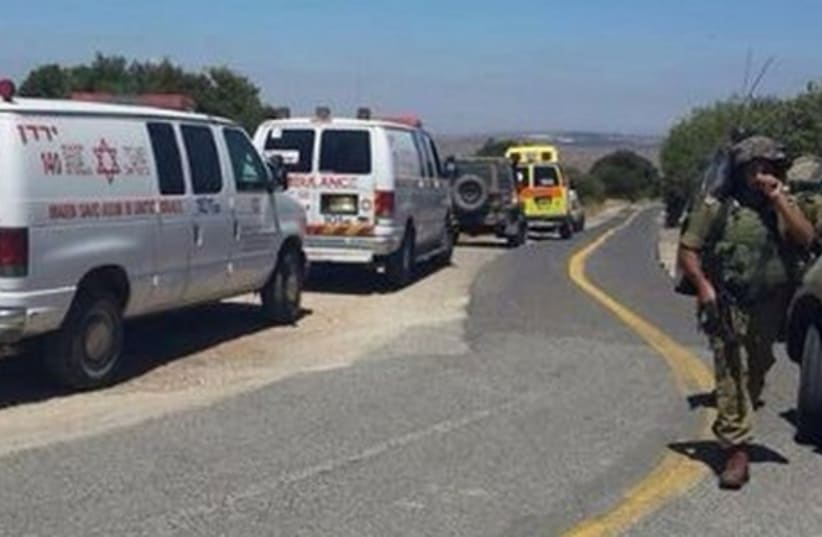
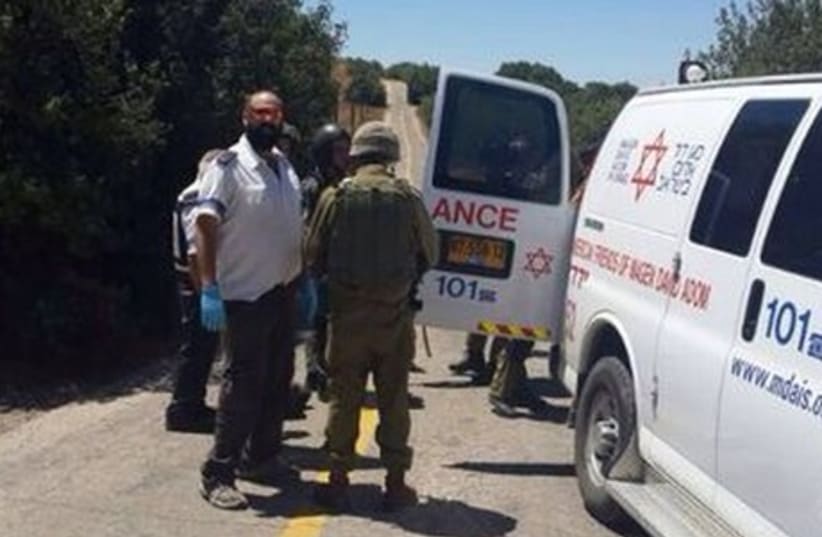
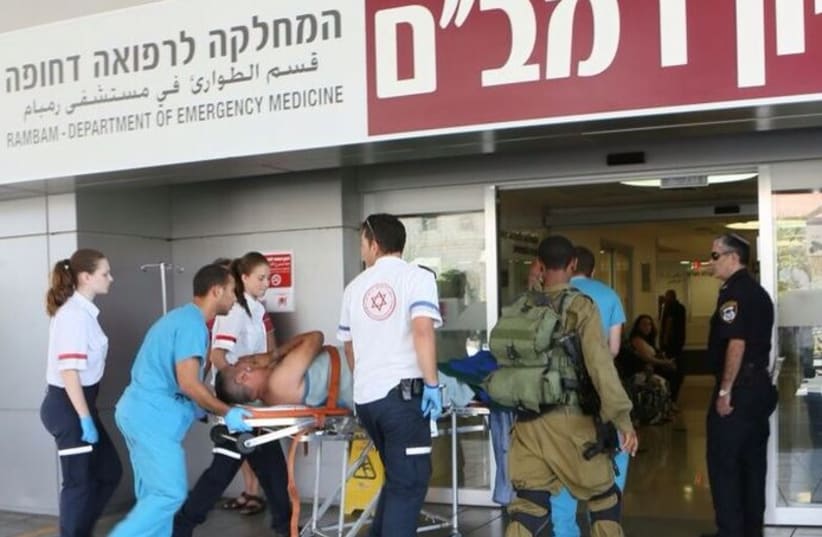

Israel is considering its moves after losing its first casualty to a cross-border missile strike on the Golan Heights from the Syria civil war, IDF Spokesman Brig.- Gen. Moti Almoz said Sunday.A 14-year-old boy was killed and two other people were wounded when an anti-tank missile, fired from inside Syria, hit a civilian vehicle belonging to a contractor carrying out routine maintenance work for the Defense Ministry.The casualty was Muhammad Karaka, of the lower Galilee village of Arrabe, whose father Fahmi, a contractor, was wounded in the attack.Karaka had been accompanying his father on his first day off school for the summer vacation.One of those wounded in the attack was in serious condition, while the other suffered light wounds.Following the attack, an army source said it found what appeared to be a hole in the frontier fence, a result of the missile piercing the barrier.IDF tanks immediately returned fire at Syrian Army positions in response to what an IDF source said appeared to be a deliberate attack on the truck.“We know that the attack was carried out from an area under the control of Syrian rebels, but we’re not at all sure that this was a Syrian rebel attack,” a source had said shortly after the attack, before suspicions appeared to fall on the pro-Assad camp.“It seems this attack was the result of direct fire,” the source said.Shelling from the Syrian civil war has crossed the border onto the Golan, including what Israel has said were deliberate attacks on its military.While the Syrian army has a presence on the Golan, some areas are controlled by rebels fighting to topple President Bashar Assad, including al-Qaida-inspired radicals such as Jabhat Al-Nusra and ISIS.Hezbollah terrorists from Lebanon also launched a cross-border attack last March, wounding four IDF soldiers in a roadside bombing along the Golan frontier.The attack came after Hezbollah accused Israel of bombing a weapons depot in a Hezbollah base in eastern Lebanon.Israel responded to that incident by launching air strikes against Syrian military sites.Karaka’s father, Fahmi, speaking to the Israeli Arab website bokra.net from his hospital bed at Ziv Medical Center in Safed, said that it was the first time his son accompanied him to the border, on his summer break.“Suddenly we heard a big blast while we were inside of the truck, which exploded,” he said.The father also expressed bitterness, claiming they were left “for more than half an hour without assistance.”“He was an excellent student, everyone loved him,” Muhammad’s cousin, Salah Qaraqara, 52, told Reuters.Prime Minister Binyamin Netanyahu sent his condolences to Karaka’s father, saying, “As a nation, our heart is torn with the kidnapping of every child and the murder of every child, and I’m sure I represent all of us when I send our condolences to this grieving family.”Dolan Abu Saleh, the mayor of Majdal al-Shams, a Druse town located on the Golan Heights, told The Jerusalem Post: “I do not think that the Syrian army is behind the attack, but perhaps terrorists that are trying to create a provocation between Israel and Syria.”Saleh doubts that the Syrian army wants to open up another front with Israel at this time and thinks that radical Islamist al-Qaida-like terrorists are the likely culprit.The biggest difference between Israel and Syria is human rights, said Saleh adding that the Golan Druse “prefer to live in a democratic state than in a place where thousands are being killed.”“Israel is the safest place in the Middle East,” he exclaimed.Asked about the feeling in the town, Saleh said that the residents are worried, because many of them have family in Syria.And regarding his fellow Druse in Syria, he said they are supporting Assad’s government.But, opined Saleh, “I think they are making a strategic mistake not to maintain a more balanced position.”“There is going to be life after Assad,” he said.Majdal al-Shams resident Fawzi Abu Jabal told the Post that the explosion took place a far distance from the town, around 50 km.away.There were Druse workers nearby, but they were not hurt by the explosion, he said.Asked who he thought was responsible, Abu Jabal responded that perhaps it was a misfire by one of the parties fighting in Syria, as “nobody has an interest to start a war with Israel.”Despite the fact that the war can be heard almost every day from the Golan, he does not feel any danger.Reuters contributed to this report.
